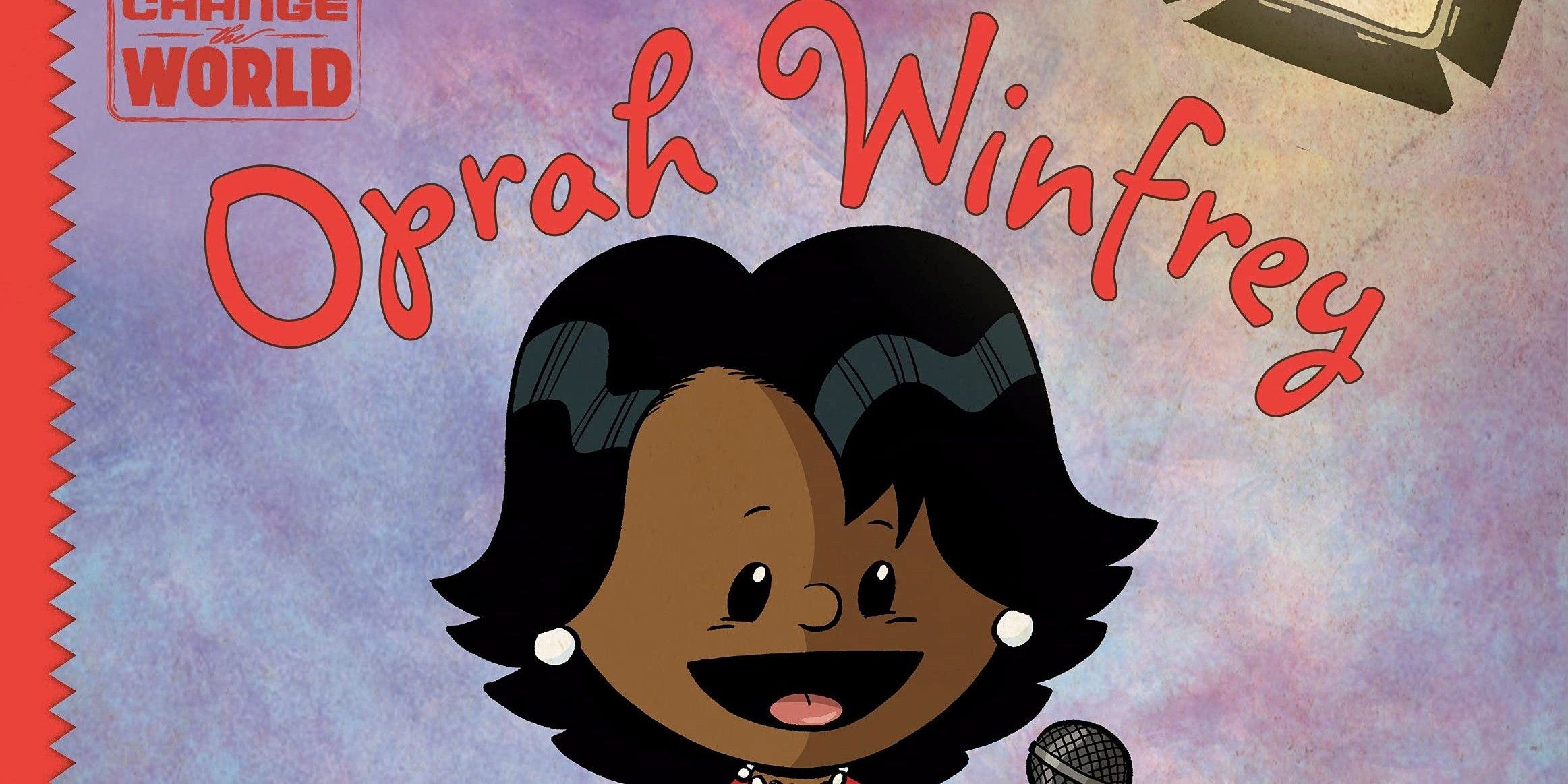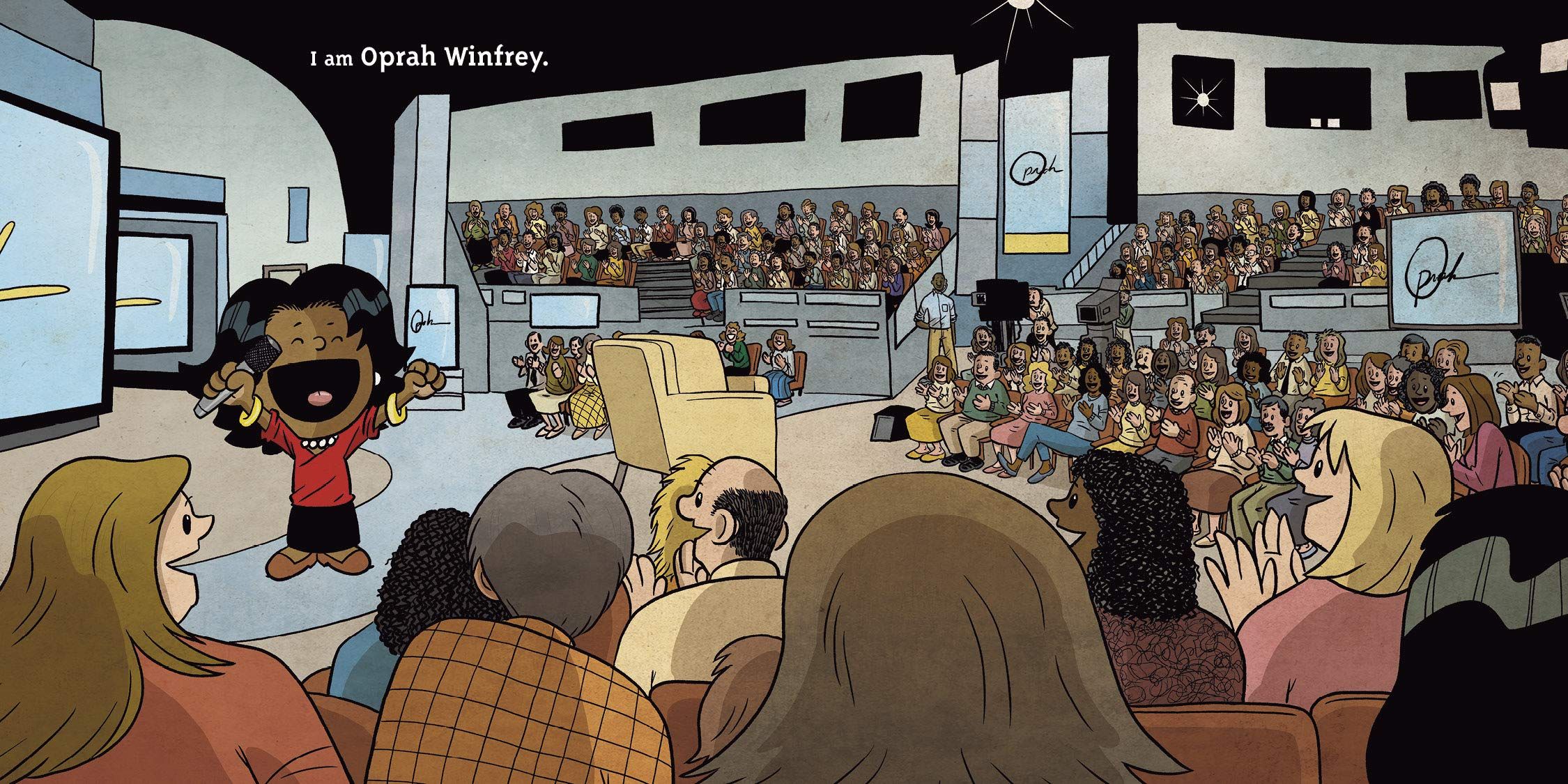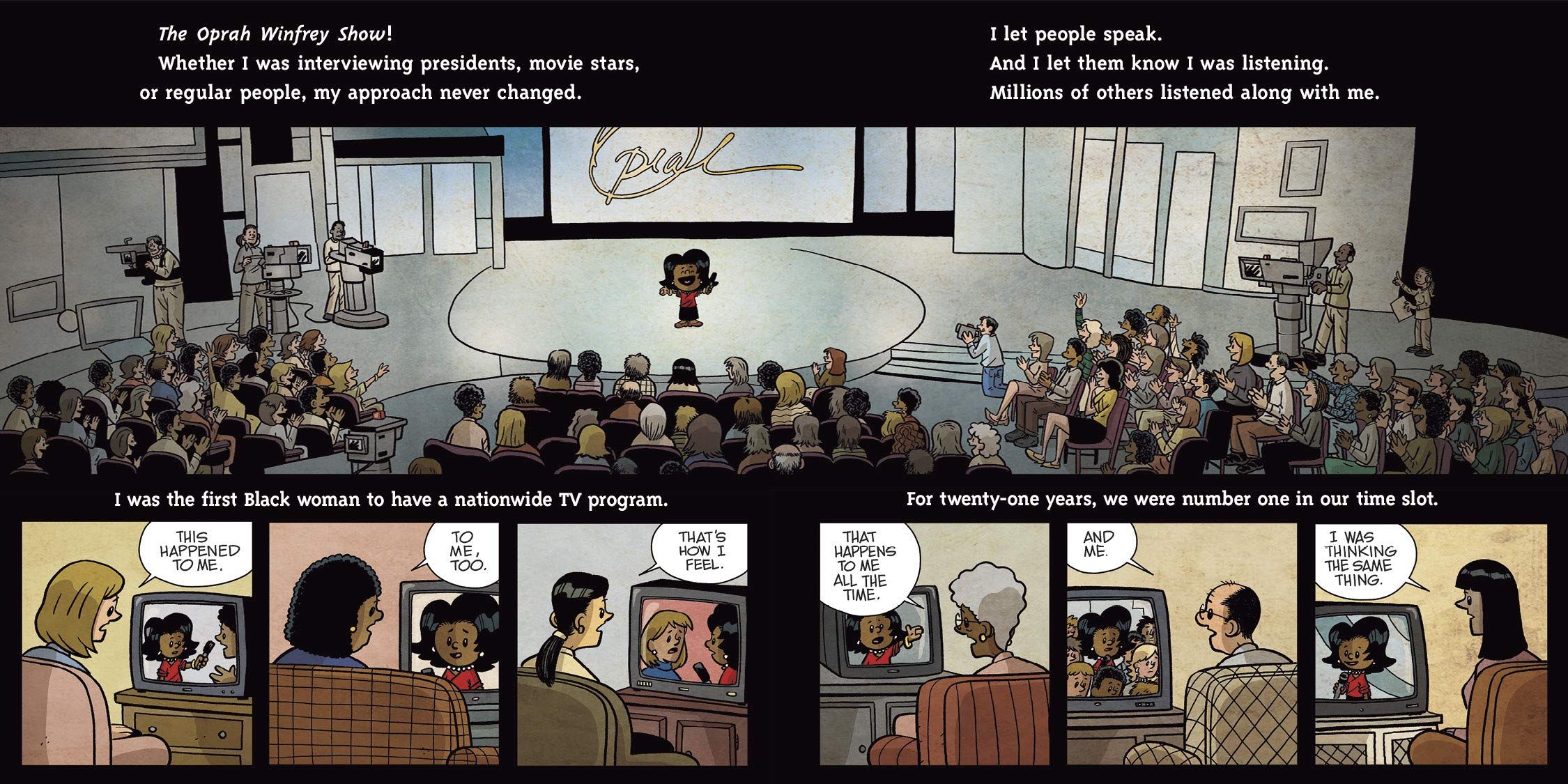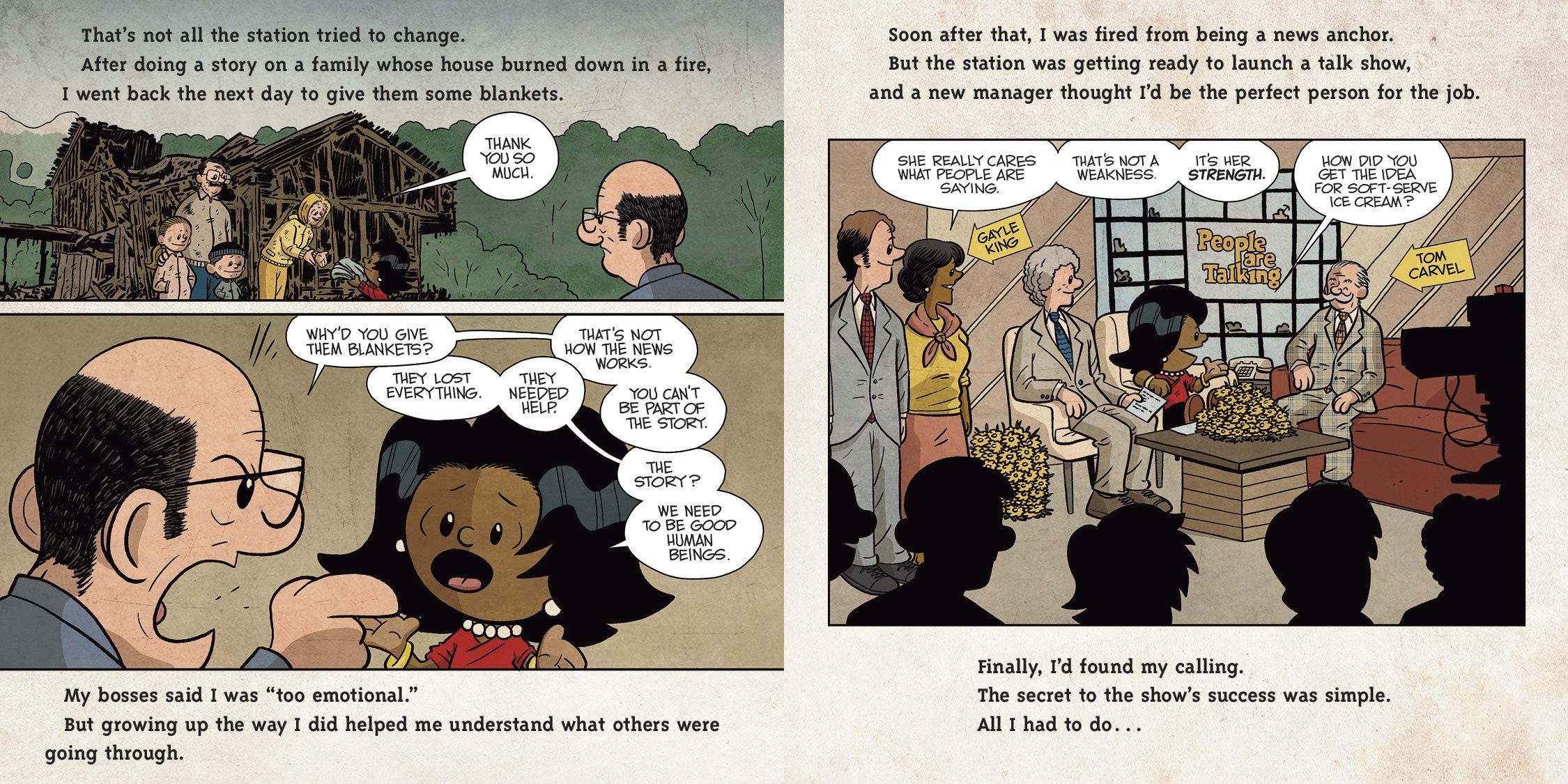Since 2014, bestselling author and comic book creator Brad Meltzer has teamed up with longtime collaborator Chris Eliopoulos for their acclaimed Ordinary People Change the World line of children's books. Each book delves into the incredible, true story of various real-life figures throughout history. With Eliopoulos' timeless, inviting artwork and Meltzer's love of history on full display, the latest book in the series follows the life and times of television personality and multimedia mogul Oprah Winfrey in I Am Oprah Winfrey.
In an exclusive interview with CBR, Meltzer explained why he chose Oprah Winfrey as a focal point for the next book in the series. He also shared how his deep love of comics informs his writing process, reflecting on his previous superhero work for DC and Marvel.
What made Oprah Winfrey the perfect person to focus on for the next book in the Ordinary People Change the World series?
Brad Meltzer: We always start with what my own kids need and what Chris' boys need, that's where everything comes from.
I looked at my kids and they're anxious and, as adults, we're all anxious. We're living in an age of anxiety. We knew that we had to do our first book about self-love and self-acceptance and I, truthfully, wanted to give my daughter and sons the story of a female businesswoman and if you're looking for self-love, self-acceptance, and a strong businesswoman, I Am Oprah Winfrey was the obvious choice.
You've done this with all the previous books but you really do provide a holistic approach to Oprah, with her philanthropic side, her upbringing in the South and, as easy as it is to get cynical about this, if there was ever an example that the American Dream is still alive in some form, it's Oprah. How was it approaching her story?
Everyone knows that Oprah does famous interviews and she has the #1 TV show but that's the smallest part of this book. We barely spend any time on it. What is far more important to me is, when Oprah was a little girl, she despised her nose so much that she used to sleep with a clothespin on it to make it smaller. I need my daughter to see that. Our kids are being assaulted by the images of Instagram and Facebook and all the things we now know are doing to their brains -- self-acceptance has become more vital than ever to fight for.
When Oprah gets older and she's just starting her career as a young reporter, they tell her her body is not the right size, that her skin is too dark, that her hair should be a different way and that she cares about people too much. One of my favorite stories in there also is that one of the first stories she covers is about a family whose house burns down and she covers the story and comes back the next day to bring them blankets because they had nothing. The head of her station screams at her saying she can't be part of the story and she says, "Story?! What about being a good human being?!" I want my daughter to have that lesson that, when Oprah is told her body isn't the right size and she cares too much about people, there is no such thing. The only thing you need to be is you, that is the single, best gift you can give yourself.
You and Chris have been working on these books for a long time. What is your creative shorthand like at this point?
We'll be doing an after-effects thing and I'll say to Chris, "[Carmine] Infantino-style!" And he knows it's the old Infantino Flash that we're looking for, with a character doing five things at once. Our code with each other is the best code of all: It's about comic books and it's always about comic books. He always makes fun of me because we'll be doing a really serious issue and he'll be like, "Did you just reference Alan Moore's final Action Comics panels?"
Chris doesn't need any cues from me. One of the things we put in this book is that Oprah was abused as a kid and we didn't gloss over that and just put in the nice stuff; not a chance. I said to Chris that we were going to do this in a really subtle way and dedicate a full page to it so we can put it in this part of the story. We put her in fully black panel and she's in a tiny, little corner there and it says, "Sometimes people didn't take care of me properly and I felt all alone."
For parents reading it, they can figure out how much they want to explain to their kids, especially if they're really young. For Chris and I, we realized that this single page for some kids out there is going to be the most important page in the entire book. Chris' art is what gives the sensitivity to that.
When you're dealing with such a sensitive audience, how much discussion is there depicting these serious moments, like Oprah's history or Marie Curie researching the very thing that will ultimately cost her her life?
We have to be careful but we also want to make sure that we never dumb our stuff down. Kids are far stronger than you think they are. Whether it was dealing with slavery for Harriet Tubman or the Holocaust for Anne Frank or sexual abuse for Oprah Winfrey, these are all moments where you could decide not to deal with it but we feel like we owe it to, not just these heroes, but to the kids reading them. To know that anyone you look up to had moments that were really difficult and hard, it's why we show Abraham Lincoln dealing with slavery or George Washington losing multiple elections.
We always show their failures. We show Gandhi saying that sometimes he has a bad temper. As someone who writes heroes for comics but also thinks a lot about them through history, one of the mistakes we make with our heroes is that we make them perfect, as if they never had a flaw. We do them a huge disservice when we do that.
Even apart from real-world history, your comics work is about dealing with legacy characters. My single favorite issue you wrote was about the Justice League with their past, present and possible future while you also did a Spider-Man issue about all the lives affected by him saving a single life.
You just described a big, beautiful picture and I see it as much smaller.
All those moments are meant to represent time and history, of course, but I see them as the power of an ordinary person that is no different than our kids' books. That story with Spider-Man is the proof that one guy can have such an impact and Justice League is about human moments. You're not just out punching bad guys. You're dealing with the loss of your father for Superman or the moment where Superman and Wonder Woman are mourning Batman's death in the future. There's only one fight scene in that entire book because I'd much rather have them deal with that shared humanity. When we have that, we have an entry point with those heroes and that's always the most interesting window for me.
As someone that's gotten to write for a variety of media, what is it about the comic book format that keeps you coming back for more?
It's just the medium I know best because it's the one I grew up reading.
I write the Ordinary People Change the World books like I write a comic book, truly, with the paneling. When we do the scripts for Xavier Riddle and the Secret Museum, the cartoon show we based off the books, I'd constantly talk about it having a sequential art feel so it feels like a moving comic book. When I write my own novels, I see it in my head like a bunch of splash pages happening in front of me. I don't know why, it's just what I love to read. It's not a conscious choice, it's just the only way I know how to do it.
What do you have coming next in the Ordinary People Change the World series and beyond?
We saw a lot of hatred towards Muslims over the past few years and Chris and I wanted to react to that in how you fight back.
The next two books coming in February are I Am Muhammad Ali and I Am Malala, two incredible Muslim fighters and they're a real one-two punch -- excuse the pun. In June of next year, we do I Am I.M. Pei, our first Asian American hero, and I Am Dolly Parton and between those two sets of books this March, we're going to do my next thriller The Lightning Rod. It is definitely busy in our house right now but I love that we get to help people build libraries of real heroes for their kids, nieces, and nephews.
What can you tease about The Lightning Rod?
I'm someone who grew up reading murder mysteries, the same as comics. I read comics in one breath and was reading Agatha Christie in others: that's why Identity Crisis was a mystery, it was merging the two things that I loved. The Lightning Rod is a follow-up to the last thriller, The Escape Artist, and is about Nola Brown, one of my favorite heroes I've ever written. The Lightning Rod is a she and it's about delving into the biggest secret from her past. You can jump on and just read it and enjoy it, whether you read The Escape Artist or not. Just like comics, every comic is someone's first. It's just the next in the series and it comes out March 8!
Written by Brad Meltzer and illustrated by Chris Eliopoulos, I Am Oprah Winfrey is on sale now.




